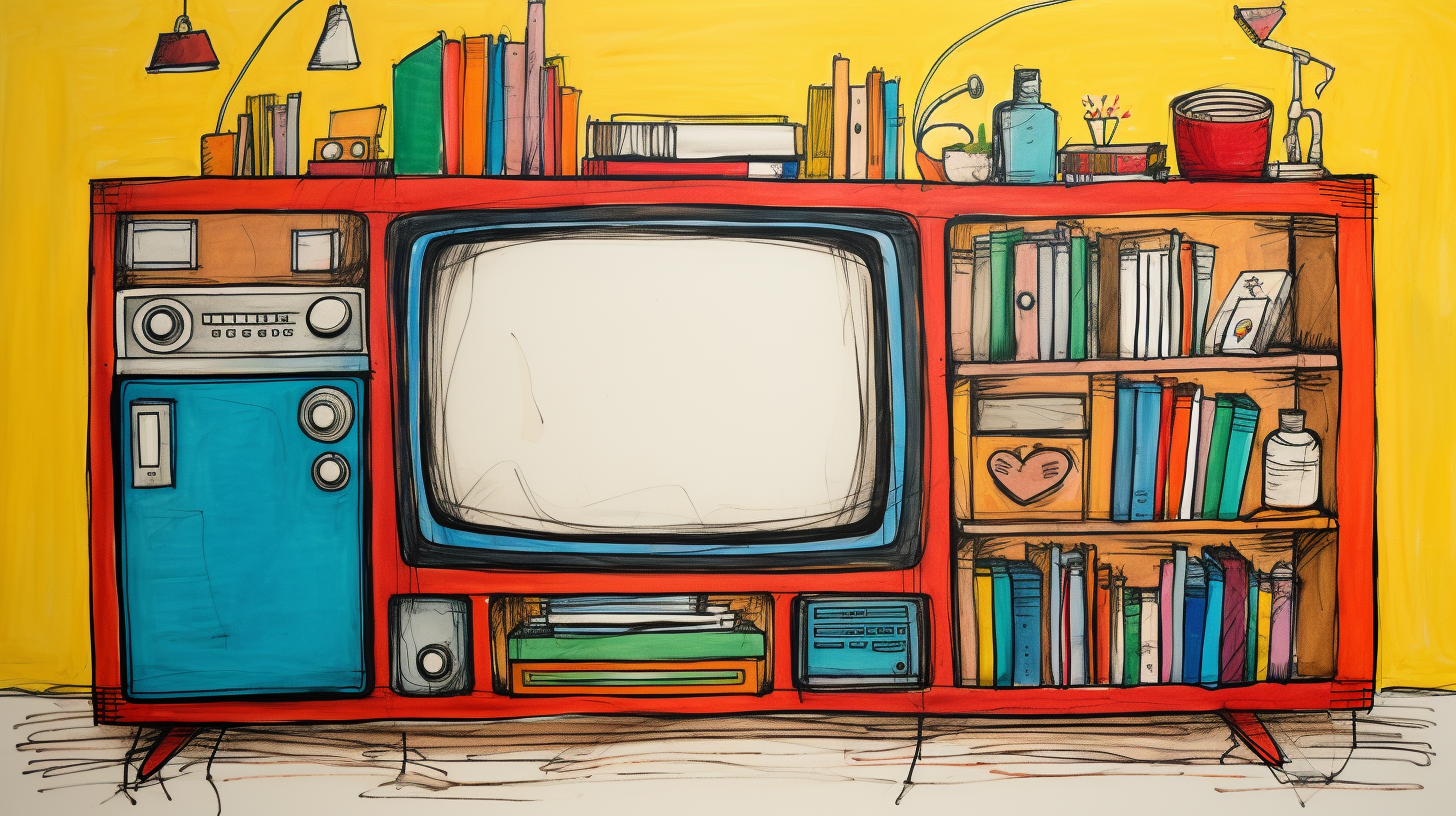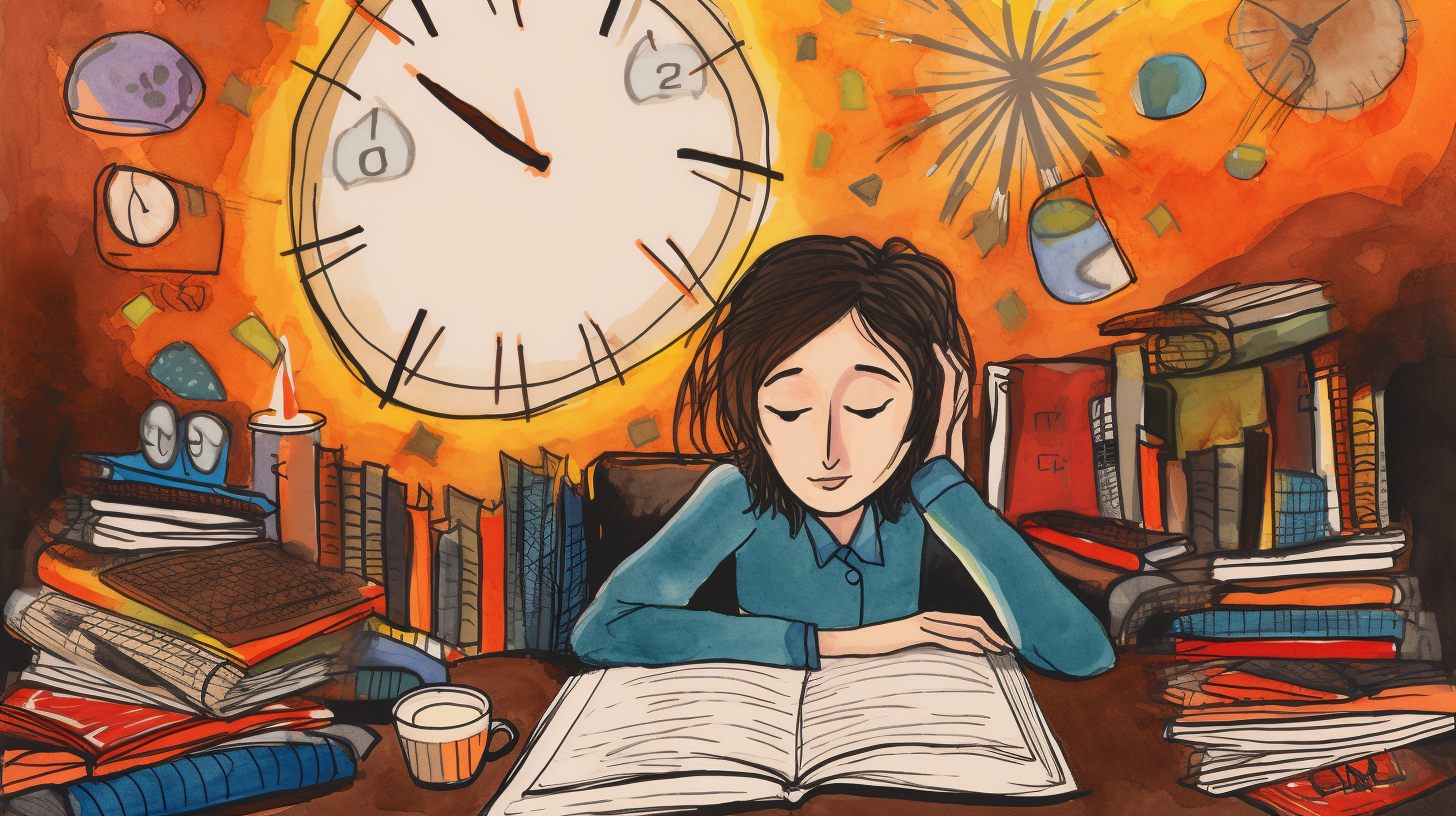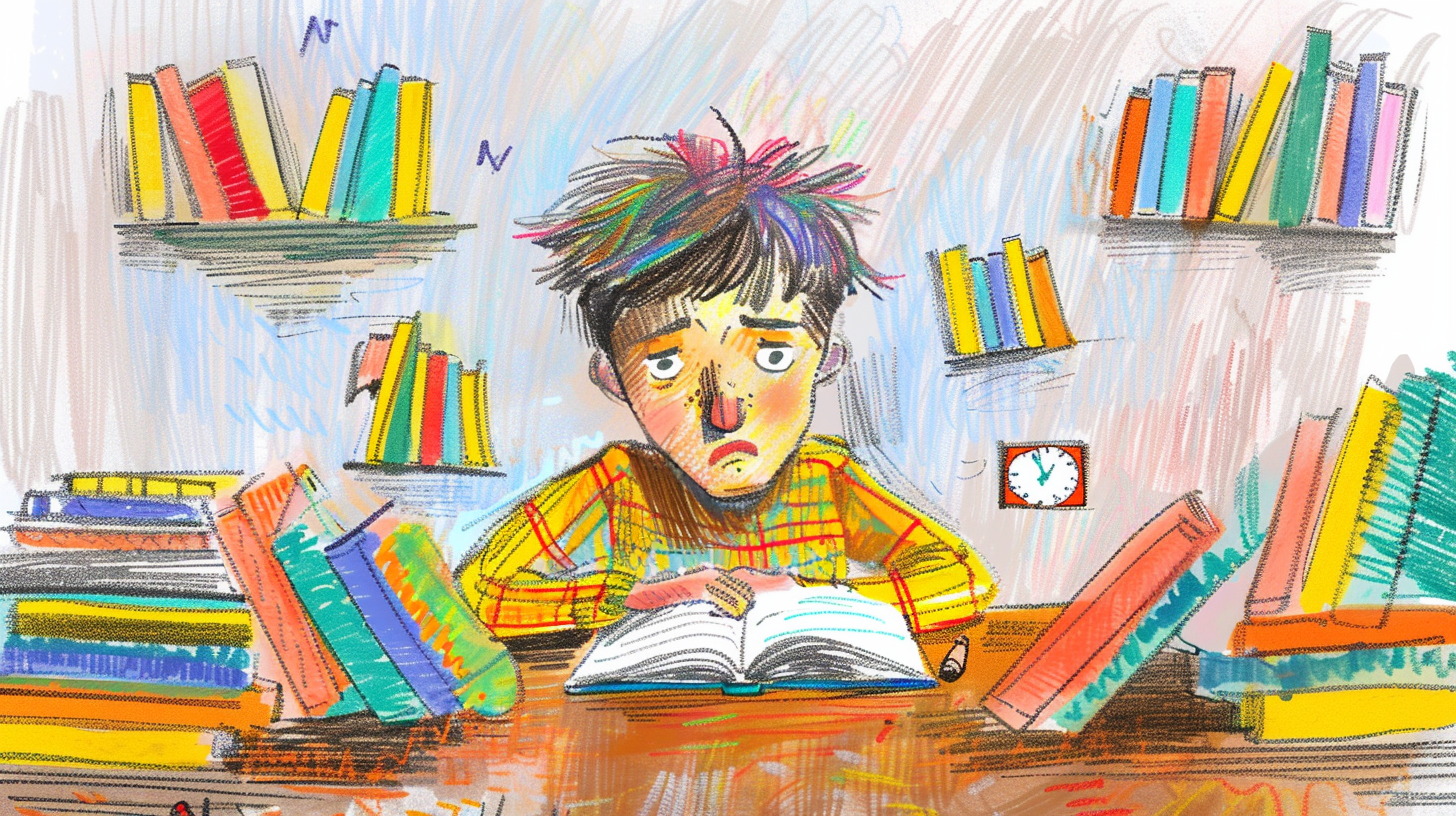The age-old debate of reading vs watching TV continues to spark conversations among avid learners and entertainment seekers alike. You’ve probably found yourself weighing the pros and cons of curling up with a good book versus lounging in front of the TV screen. This article will investigate the benefits of reading, highlighting how it can expand your mind and imagination.
We’ll also explore the benefits of watching TV, acknowledging its role in relaxation and cultural engagement. But it’s not all black and white; we’ll discuss the drawbacks of reading that may have you think twice about spending all your time with your nose in a book. And, of course, we’ll examine the drawbacks of watching TV, which might make you consider moderating your screen time.
Benefits of Reading
Improved Mental Stimulation
When you engage in reading, you’re not just turning pages; you’re stimulating your brain in ways that watching TV can’t match. Brain activity while reading vs watching TV presents a stark contrast: while reading, your brain is actively creating worlds, empathizing with characters, and grappling with concepts. This engagement results in improved cognitive functions over time. In essence, reading acts as a workout for your mind.
Books challenge you to think critically, follow complex narratives, and soak up knowledge. While TV vs. reading might offer you visual entertainment, books provide a more profound sense of engagement that keeps your cognitive wheels turning. It’s like choosing between watching a sport and playing it – the active involvement of reading gives your brain a fuller experience.
Enhanced Vocabulary and Language Skills
Why is reading better than TV for language skills? It’s simple – exposure to a richer vocabulary. The language used in books often surpasses what you’d hear on television, with a scope and depth tailored to invigorate your lexicon. You’re likely to encounter words and phrases that are new or used in intriguing contexts. This exposure helps in understanding complex language and applying it, which can be particularly beneficial in academic or professional settings.
Improving your vocabulary and language skills has tangible advantages. It’s not just about sounding smart; it’s about articulating your thoughts clearly and effectively. Whether you’re negotiating a deal, writing a report, or just having a conversation, the language proficiency gained from reading can be a game-changer.
Increased Knowledge and Understanding
Perhaps the most evident draw of books vs. TV is the depth of knowledge you can gain from reading. Books dive deep into topics, offering insights and layers of understanding that television shows rarely touch. Reading equips you with wide-ranging and specialized knowledge, depending on your choice of material. Consider, for instance, how a historical novel can immerse you in the intricacies of a past era or how a science text can illuminate complex theories.
This increased knowledge doesn’t just stay on the page; it translates into a better understanding of the world around you. With reading vs. watching tv, you’re not just absorbing facts; you’re learning to connect them, to see patterns, and to apply critical thinking to your daily life. Reading helps you weave a network of knowledge that is impressive and incredibly useful.
Benefits of Watching TV
Entertainment and Relaxation
TV offers a wealth of entertainment, from edge-of-your-seat dramas to laugh-out-loud comedies. As you sit back and let the storyline unfold, the world’s weight seems to lift, allowing a unique form of relaxation. Your favorite shows can be a deserved break after a lengthy day, providing an effortless way to unwind. Unlike reading books, TV can swiftly transport you into a different realm without requiring the same level of mental engagement.
Visual Learning and Cultural Exposure
You’ve likely heard the debate about books vs. TV, but it’s essential to recognize TV’s role in visual learning and cultural exposure. Visual stimuli from television can enhance learning, especially for those who grasp information better through images. Diverse programming expands your understanding of different cultures and lifestyles, an exposure that is more immediate and visually rich than in books.
Keeping Up with Current Events
Regarding staying informed, watching TV can be more efficient than reading. You get real-time updates and in-depth analysis of global happenings. The visual aspect of news segments can also create a more tangible experience than reading about events. Understanding the world around you becomes easier as you watch stories come to life on the screen.
Drawbacks of Reading
Requires Time and Effort
You’ve likely debated between reading vs. watching TV, especially considering how each activity fits into your busy life. One significant difference is that reading demands both time and effort from you. Books require prolonged focus and mental involvement, unlike flipping on the television and immediately being immersed in a story. Committing to a book means being ready to invest moments of your spare time and often hours, delving into the complexities of narrative and character development.
For those wondering why reading is better than TV, consider that while books enhance critical thinking, they also necessitate a higher degree of participation and a certain level of literacy proficiency.
Can Be Mentally Exhausting
While the mental engagement of reading is lauded, it’s essential to recognize that this same benefit can be a drawback. The brain activity while reading vs watching TV is significantly different. Reading engages the brain more actively than TV, requiring continuous information processing, visualization, and emotional involvement. This cognitive workout strengthens the mind but can also lead to mental fatigue, particularly after a long day of work or study. Even if you love diving into a good book, you may find that your brain craves the relative ease of watching television, making books vs. TV a practical concern for your relaxation time.
Limited Visual Stimulus
Diving deeper into books vs. television, one aspect where audiobooks may trump traditional reading is visual stimulation. While reading stimulates the imagination and compels you to create worlds in your mind, it also lacks the vivid visual elements that both TV and audiobooks accompanied by visual content can provide.
While considering books vs TV advantages, the multi-sensory experience of a television show is difficult to replicate with words on a page. On the other hand, audiobooks can enhance the experience by allowing you to visualize while also engaging in other activities, thereby offering a compromise between the mental investment of reading and the sensory experience of watching TV.
Drawbacks of Watching TV
Sedentary Lifestyle and Health Risks
Your body remains largely inactive when you settle in for another TV show. Sedentary behavior is directly connected to numerous health risks. Studies show that extended periods of inactivity can lead to obesity and chronic diseases such as type 2 diabetes and heart disease. The chances of these issues increase with each hour spent in front of the TV.
Also, binge-watching often pairs with mindless eating, which exacerbates the problem of weight gain. While books encourage minimal physical movement, they do not typically involve continuous hours of immobility associated with watching television.
Passive Consumption of Information
The brain activity while reading is starkly different from when you watch TV. Reading is an active process, engaging your brain in complex ways. Your imagination comes to life, creating mental images and emotional responses – this stimulation enhances brain connectivity and can improve cognitive functions over time. In contrast, television encourages passive consumption. Information conveyed through visuals and sound requires less mental investment from you, diminishing the potential for cognitive engagement.
Also, while reading, you’re more likely to reflect and critically think about the content, absorb detailed narratives, and build vocabulary. With TV, the rapid pace often discourages deep processing and contemplation.
Potential for Addiction and Overindulgence
TV viewing can easily slip into addiction and overindulgence. The immediate pleasure derived from easily consumable content can lead to hours of watching without realizing it. This habit forms behavioral patterns prioritizing TV over more beneficial activities like reading or physical exercise.
The ease of access to vast content libraries only increases the likelihood of developing a TV binge-watching habit. This type of continuous engagement has been linked to adverse mental health outcomes, including depression and anxiety. While both reading and watching TV provide forms of escape, the overuse of television does not nurture your mental state nor offer the long-term benefits of reading books.
Conclusion
You’ve seen how reading and watching TV come with their own drawbacks. Yet when you weigh the pros and cons, reading emerges as the more beneficial activity in the long run. It demands more from you but rewards you with increased cognitive engagement and mental stimulation. While TV might offer an easy escape, the effort you put into reading fosters a sharper mind and a healthier lifestyle. So, remember the lasting benefits of picking up that book next time you decide between a book and the remote. Your brain will thank you for it.
Frequently Asked Questions
Is it better to read than watch TV?
Yes, reading is often considered better than watching TV because it is a more active process that stimulates the brain, improves mental health, and provides educational value, in contrast to TV’s primary purpose of entertainment, which can negatively affect mental health.
What is the 20 20 20 rule?
The 20-20-20 rule is a practice to reduce eye strain and involves looking at something 20 feet away for 20 seconds every 20 minutes of continuous screen use. Eye care professionals recommend it.
Is reading better for your brain than watching TV?
Reading is generally better for your brain than watching TV because it requires more mental work, including language processing, imagination, and critical thinking, while watching TV is a more passive activity.
Is reading better for the eyes than TV?
Reading can be better for the eyes than watching TV since it doesn’t expose the retina to blue light emissions. However, it is essential to take regular breaks to prevent eye strain when reading for extended periods.
What are the disadvantages of watching television?
Watching television has several disadvantages, such as contributing to a sedentary lifestyle and health risks like obesity, encouraging passive information consumption, addiction and overindulgence, and potential negative impacts such as exposure to inappropriate content.




